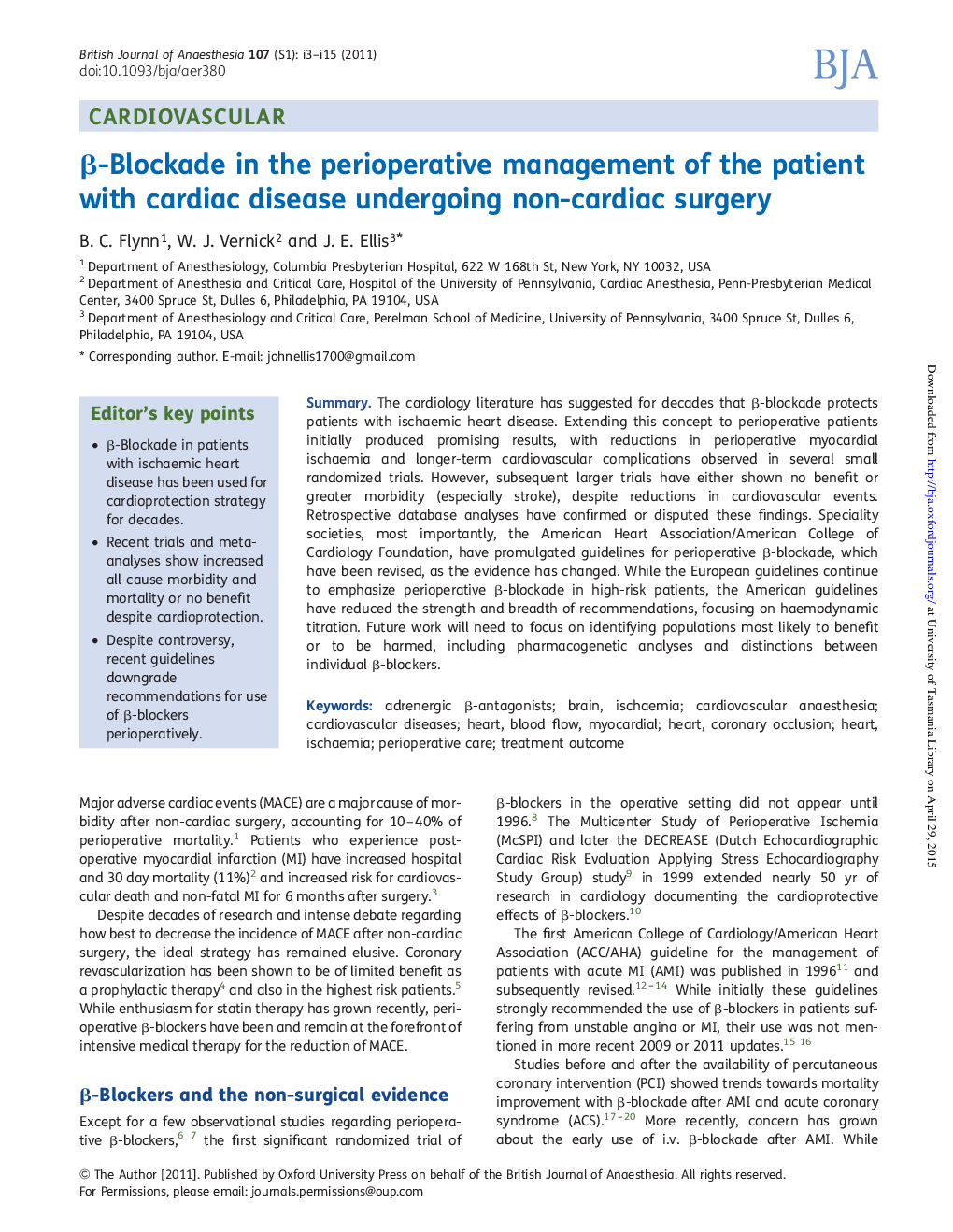| Article ID | Journal | Published Year | Pages | File Type |
|---|---|---|---|---|
| 8935814 | British Journal of Anaesthesia | 2011 | 13 Pages |
Abstract
The cardiology literature has suggested for decades that β-blockade protects patients with ischaemic heart disease. Extending this concept to perioperative patients initially produced promising results, with reductions in perioperative myocardial ischaemia and longer-term cardiovascular complications observed in several small randomized trials. However, subsequent larger trials have either shown no benefit or greater morbidity (especially stroke), despite reductions in cardiovascular events. Retrospective database analyses have confirmed or disputed these findings. Speciality societies, most importantly, the American Heart Association/American College of Cardiology Foundation, have promulgated guidelines for perioperative β-blockade, which have been revised, as the evidence has changed. While the European guidelines continue to emphasize perioperative β-blockade in high-risk patients, the American guidelines have reduced the strength and breadth of recommendations, focusing on haemodynamic titration. Future work will need to focus on identifying populations most likely to benefit or to be harmed, including pharmacogenetic analyses and distinctions between individual β-blockers.
Keywords
Related Topics
Health Sciences
Medicine and Dentistry
Anesthesiology and Pain Medicine
Authors
B.C. Flynn, W.J. Vernick, J.E. Ellis,
